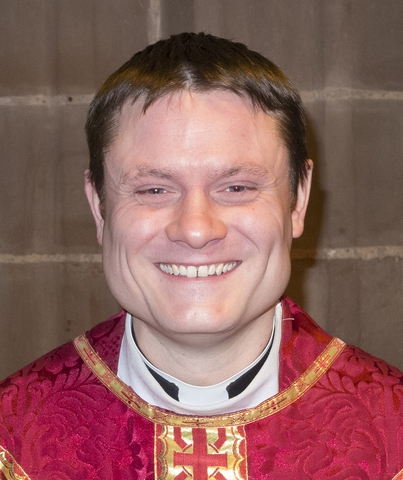
April News from the Clergy
25 Mar 2022 • From the Clergy
Shortly before 10pm on Shrove Tuesday 1945, the air raid sirens sounded in Dresden. They had done so more than a hundred times previously during the war without any serious damage being inflicted, the Saxon capital being one of the few intact German cities remaining. Despite the increasing concentration of armaments and other war industries, the anti-aircraft defences had been moved elsewhere, leaving the city extremely vulnerable.
That night, however, was different. Within half an hour, a massive RAF squadron had laid waste the centre with an intense bombing raid. In the early hours of the following morning, a second group pounded the city once again. Dresden became an inferno, a firestorm sweeping through the centre, burning or asphyxiating many who had survived the impact of the bombs. The US Air Force undertook a third wave of bombing early the following afternoon.
On Ash Wednesday, 14th February, there would be no symbolic imposition of ashes for penitence. Dresden itself lay in ashes with thousands dead. Easter that year must have been anything but a joyful celebration amidst the carnage. Hitler’s ‘thousand year Reich’ had crashed into ruins 988 years short of its target, dragging millions of people down with it. Easter 1945 in Dresden was even bleaker than Christmas 1940 in Coventry.
How can the joy of Easter be celebrated amidst such horror? How can we talk of the triumph of the resurrection in the midst of mass slaughter, or the victory of God over death as death seems to be everywhere around? This is far more than an abstract debate about the rights and wrongs of a Second World War bombing campaign. It has contemporary resonance. This year, it is a question which the suffering Christians of Ukraine will be facing. With their country invaded and war crimes taking place around them, with unknown numbers killed and millions displaced, it is a grim time indeed for Ukrainians who have become the target of a villainous tyrant in the Kremlin. There are still five weeks until Easter as I write this, but right now there seems little hope that this senseless war of aggression will end speedily. Even if peace has come by Easter, Ukraine will be a shattered country.
What will it mean to celebrate Easter, to talk of resurrection and the conquest of death, in such terrible circumstances?
I don’t have any easy answers to that and sitting in safety a thousand miles away, it would be offensive of me to even try to speak for Ukrainians.
Yet it is an important general question for us as Christians, for there is always a great temptation to come to Easter too early, to anticipate the ending and ignore the darkness of Lent and Passiontide. There is no greater darkness than Good Friday, the moment at which the Son of God was nailed to the cross and suffered death. In that moment, the very worst of human sin was laid bare and the forces of evil apparently triumphed. To understand Easter, we need to appreciate that abyss of hopelessness, to realise how bleak everything seemed.
Easter is not just a symbolic moment, but the moment at which God demonstrated his power against evil and death, that he called humanity out of those depths of despair into something much greater.
Easter was God’s act for all people, everywhere, and we cannot fully claim to be an Easter people while some of the human body suffer so terribly. This Easter, as we commemorate the resurrection, find time to pray for the people of Ukraine, and of Afghanistan, Iraq, Somalia, Yemen and all the other conflict zones of our world, that they may come through these horrors to their own Easter moments.
Let us remember that the light shone in the darkness and that the darkness did not overcome it, and do all we can to bring that light into the dark places of our world.
Phil